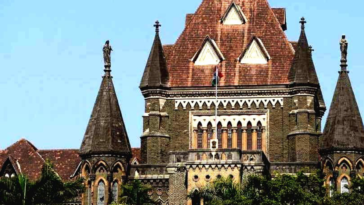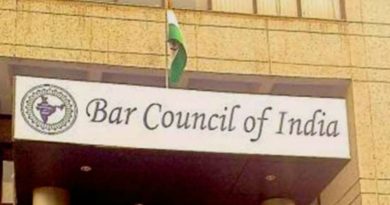Democracy Requires Constant Dialogue Between Differing Opinions: CJI DY Chandrachud
(Judicial Quest News Network)
Dehradun 02 December 2023, Speaking at Justice Keshav Chandra Dhulia Memorial Lecture on the topic of ‘Democracy, Debate and Dissent’. Chief Justice of India DY Chandrachud said.
“Our country has a robust democratic heritage which it has earned over the last seven decades through constant dialogue, experimentation, and participation. But to truly appreciate this heritage, we must explore a primitive question about what purpose does democracy serve in our society”
CJI said that democracy requires constant dialogue between differing opinions and civil society organisations to fulfil the aspirations of the people.
The CJI spoke on how deliberations strengthen democratic foundations and on the vitality of the dissent in a democracy.
CJI also said democracy is contingent on certain minimum guarantees where free citizens can genuinely claim control over the circumstances of our own lives.
First, it must routinely produce consensus decisions without arbitrary or unfair imposition of power.
Second, citizens must participate in civil and political discourse and have an interest in it. This is a social world where their moral status of citizens is acknowledged, a world which is structured to enable their freedom and serve their interests.
He further said that if a democracy cannot safeguard discourse around the needs of all its people, it falls short of its promise. In order to resolve the discontent of its people, a democracy must begin with hearing them.
merely because a body is elected does not ensure that it acts in the best interest of those who it governs. Democracy is messy, and imperfect but inherent in it are the postulates of justice, liberty, equality, and fraternity.
On the subject of equality, the CJI said that to be equal is not only to be equal in the eyes of the law, but also to be treated as equals by our fellow citizens.
indignity of inequality often comes not in the form of a policy or a law but in the form of, say, exclusion from informal workplace gatherings or even social groups in school and university due to religion, caste, gender or sexual orientation.
One of the biggest challenges we collectively, face is how we surmount issues of this nature, where there is no violation of a legally enforceable right in the traditional sense.
He further said that faming all social and political issues as rights and resorting to courts for resolution of the same limits the constitutional space intended for alternative democratic mechanism, CJI Chandrachud remarked.
The Constitution envisions other methods through which abuse of power can be legitimately checked. This includes debates and discussions inside and outside the legislature on crucial issues. The executive can be held accountable for its actions by Parliament inside the house, and outside by citizenry.
The chief Justice underscored that dissent in a democracy emerges from profound questions about the working of the society. Abolition of slavery, annihilation of caste, emancipation of gender minorities, and religious harmony were all once dissenting opinions. However, these dissents hold the power to fundamentally. Restructure our society by sparking an important conversation.
These dissents emerge not from thin air but from a democratic culture of fierce debates. Therefore, a society which does not encourage its citizens to critically think, question the powers that be, and engage in nonconformist democratic discourse will fail to progress because it will fail to create dissenters.
While social harmony among citizens is a pre-requisite to democracy, it cannot be manufactured by removing conditions under which dissent may be freely expressed. A society is often known by its great dissenters because dissenters inform us of the location and direction of a democracy.
I hope that the young minds that participated in this event continue to be committed to the values of the constitution which cultivate a culture of democracy, debate, and dissent. He said while concluding his lecture




